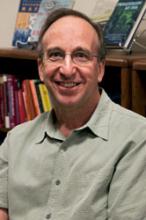What Is It
Berkeley founded and defended idealism, the doctrine that there is not a material world; reality is the orchestration of ideas in minds, nothing more. He influenced Hume, Mill, Russell, and many other philosophers. John and Ken explore Berkeley's ideas with David Hilbert from the University of Illinois at Chicago, author of Color and Color Perception: A Study in Anthropocentric Realism.
Listening Notes
Berkeley was one of the great British empiricists. He was also a bishop in Ireland. He thought that to be was to be perceived. Ken raises the objection that even if we were not here, the world would still be here. Berkeley thought the only things were minds and their ideas. If we were not around, the world would be here because it is an idea in the mind of God. Ken introduces the guest, David Hilbert, professor at the University of Chicago at Illinois. One of his central ideas has been labeled idealism, or immaterialism. It was influenced heavily by Descartes and Locke.
Ken asks how the world can be just ideas. Descartes thought there was a world consisting of material objects and our ideas of them and that it is hard to know about the material objects. Berkeley's solution to Descartes's problem is to reject material objects and keep only the ideas. John thinks Berkeley's most important contribution to philosophy is his emphasis on the link between action and experience. What causes the ideas I am having? Berkeley's answer is that God does. Berkeley thought we were very tightly connected to God's mind. Do Berkeley's arguments that being is being perceived work well without the assumption that God exists?
How does one have an idea of oneself in Berkeley's framework? Are we just floating systems of ideas? How does Berekeley account for uncovering details using instruments like microscopes? Berkeley thinks we are just finding better, more intricate ways of predicting our future experience. What does Berkeley think of the problem of other minds? He doesn't really explain how we know there are other minds. His philosophy depends on there being at least one other mind, that of God. Ken closes by talking about how one of the biggest problems for any philosopher is identifying the correct link between our ideas and the world.
- Roving Philosophical Report (Seek to 03:55): Rujun Shen asks residents of Berkeley, California why their town has that name then looks into the history of the town and school.
- Conundrum (Seek to 46:00): Amy Standen calls in to announce she is moving so she will not be able to continue acting as the roving philosophical reporter. Then, she asks how she can be the same person over time even though there is so much changing in her life now.

Comments (1)
Raj33
Sunday, May 23, 2021 -- 6:30 PM
Great article about GeorgeGreat article about George Berkeley
thanks for sharing